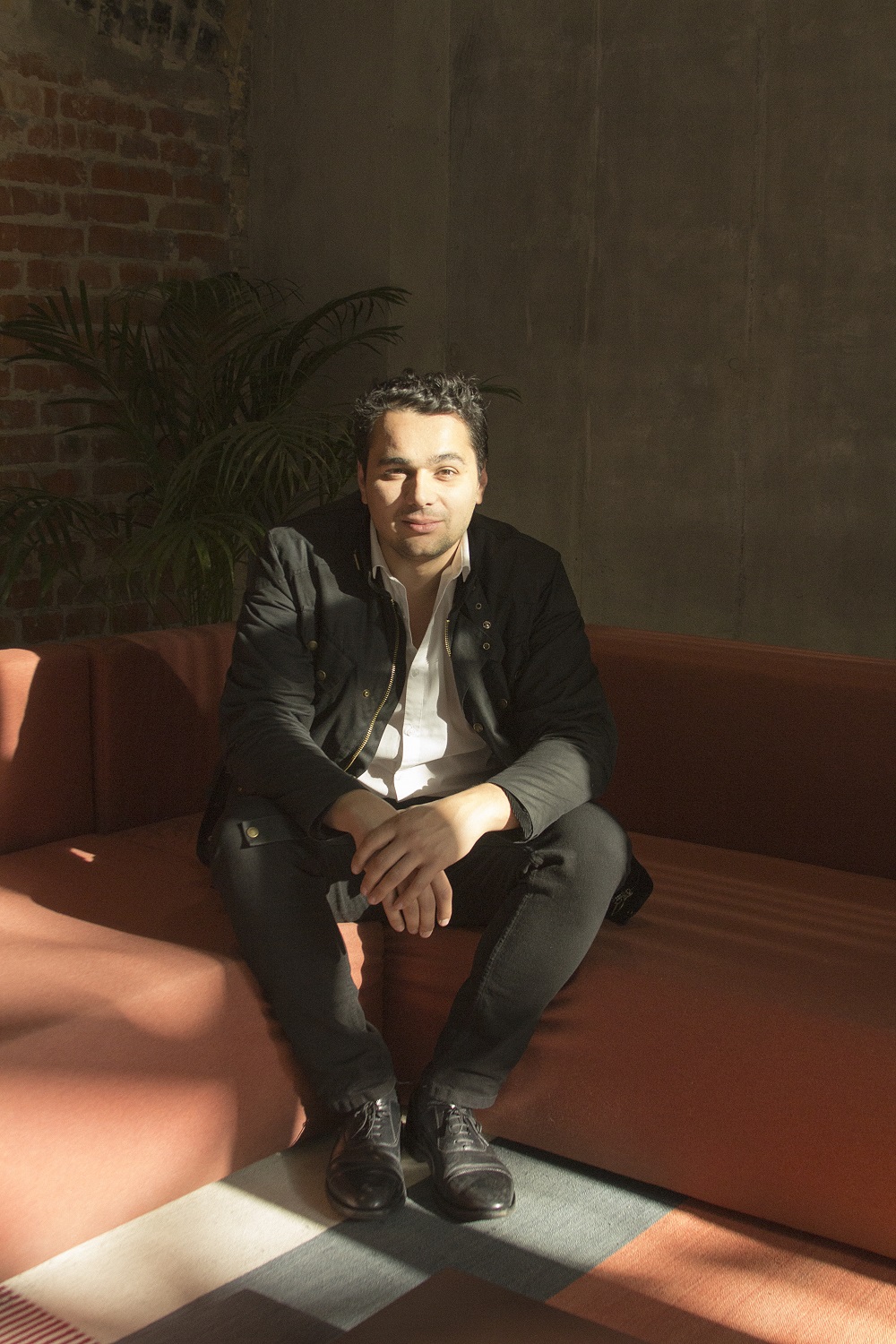hotel
Architecture is very romantic career, it comes with a cost
An interview with Harry Ibbs from Zaha Hadid Architects

October 4-5, The Architecture of the Future conference was held in Kyiv . BURSA Hotel hosted the participants and speakers of the conference. We spoke to Harry Ibbs from Zaha Hadid Architects on lastest projects, life as an architect and work-life balance.
What are you responsible for at Zaha Hadid Architects?
I’m the Head of BIM (Building information modelling) and workflow, digitalazing Zaha products, not for all projects, it’s only for selected contracts. I’ve been here for five years and I have built a great team around me in those years and the team has grown significantly in recent years.
What is the last project you participated at?
Last project my team participated is Sverdlovsk Philharmonic Concert Hall, we’ve just won the competition. Majority of my staff are working on Navi Mumbai International Airport, part of my team are working on King Abdullah Financial District Metro Station. And I’ve learned recently that Zaha Hadid signed contract to subway station in Dnipro, but I don’t know if my my team will be involved. But I’ve got a lot of confidence that it will be a great project, I believe that the country will love it and I think we’ll create an asset and iconic attribute to the city,hopefully, more projects in Ukraine will emerge.
How do you see people’s homes in 50 years? Will we live in futuristic accommodations or keep living in something cozy and traditional?
A mixture of both, I think. People will live in smaller spaces. It’s happening in London. When I was born in London, we lived in a big five-bedroom detached house and it was common. And today there’s not a lot of family singly unit detached houses, the majority are converted into multiple unit flats, two or three families live in the same size house. Space is a very expensive commodity today, so in the future, I don’t like to predict, but I’d put my money on that humans will live in smaller spaces, more minimalized and I don’t think we’ll live in futuristic buildings, it will be a mixture of spaces like this wonderful building we’re in today, industrial buildings reused and a lot of people living in new builds, hopefully with good design, we’ll see.
What buildings in Kyiv impressed you most? What’s your impression of it’s architecture?
I was really impressed with the Baroque neoclassical architecture in the city, very beautiful, very ostentatious, I like that. I didn’t like the modern metal warehouses on the highway but I really-really loved this hotel. It’s a mixture of old and new and it’s really well done, it’s beautiful.
What’s your favourite architectural style?
I’m very into minimalism, I really appreciate it. I think that’s what really drove me to go to Zaha.
How long are you sleeping? Do you manage to keep work/life balance?
Hahaha! I’m a workaholic, I love to work, I love architecture, that’s my character. I wouldn’t recommend to go into the architecture if you are not a workaholic, it’s a career of passionate love, it’s not 9 to 5. If you want a 9 to 5 job, go into something else. .
How did you understand you want to be an architect?
My dad was a head designer for Burberry. He always wanted me to be an architect and gave me the opportunity. When I was growing up as a child from the age of 3 years old, my father employed a tutor that lived in the house, who was an artist, so as a very small child I was influenced by my father, mother and a nanny to be driven into architecture. Unfortunately, my brother and sister went to law and I’m the only designer in family. But I went to pilot school from 11 years old till 17 I was flying planes. I personally wanted to be a pilot, however, circumstances happened and I went to architecture school at 17, so it was a destiny, family and mutual interest.
I think a lot of people wanted to become an architect, a lot of people I meet go: “Oh I wished to became an architect”. Maybe that’s a human instinct that we want to build, we want to design, it’s a caveman instinct. This is very hard work, it’s not easy, it’s a long academic process, as long as being in medicine and that’s why you should be a workaholic. But it’s very fortunate, because when you’re a part of a team, and you do projects, they will outlive you. You are born, contribute, die and these projects will be for generations and centuries. This is very romantic career, it comes with a cost.
What’s your hobby? Do you have a free time for it?
I have a hobby. In my private time I restore old buildings, I do a lot of restoration, refurbishment with my own hands, I have a team and we work every weekend, just restoring victorian properties in London. So it’s very passionate hobby for me, very costly one as well.
What’s the best thing about being an architect?
Constant knowledge and information. In order to retain your title in England to be an architect, you have to demonstrate consistent learning. If you don’t demonstrate this, you’re liable to lose your title as an architect in UK. It’s a beautiful thing I feel, because your job is evolving, you’re going forward, you can’t stay static. The benefit is, for me personally, is that it doesn’t feel like a job. Being an architect feels like you’re still in academy, you’re still learning everyday and I’m an addict for knowledge.
What’s the worst thing about being an architect?
I cannot switch off. There’s no OFF button.